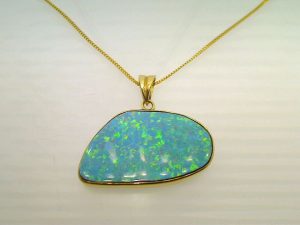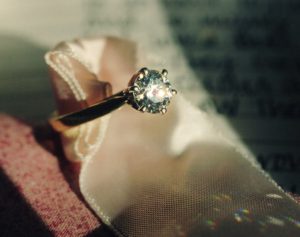It can certainly be traumatic to discover that your precious jewelry has been severely damaged in a house fire. Even if they do not have high monetary value, some may have been passed down by generations, making them almost impossible to replace. However, the majority of these types of metals and stones have a considerably high melting point, allowing them to survive the flames. Even if they look unsalvageable, they actually only contain a smoke residue that can be cleaned with special products and methods.
Restoring Jewelry After a Fire
Although many types of jewelry can be restored after a fire, they can also be melted down and recast into their original form.
However, there are restoration jewelers who are specially trained to handle fire and smoke-damaged jewelry, using the proper products and methods for each type of material. They will do this with advanced equipment, such as ultrasonic cleaners, to reach deep within the crevices and remove the residue and tarnishing. They will also be able to remove stones and clean them individually, placing them back within the holder when they are clean.

While it is recommended that fire-damaged jewelry to be inspected and cleaned by a professional, it can be done without specialized equipment. Depending on the degree of damage, keep in mind that it will require patience in order for them to be restored effectively.
You will also want to be aware of the type of material you are cleaning, such as metals compared to stones. Semi-precious stones such as emeralds or amethyst, will need to be cleaned with products that do not contain harsh chemicals.
How to Clean Gold, Silver, Platinum, and Other Metals
Depending on the degree of damage, some materials will require more patience and products than others. Just keep in mind that it is important to start with gentle products first and move to stronger chemicals if the residue persists.
For metals that are not severely damaged, use a soft cloth to remove any soot on the surface. You can also soak the metal in a jewelry-cleaning solution for tougher residues. If you do not have jewelry cleaner, you can also mix a solution of warm water, Mr. Clean’s all-purpose cleaner, and a splash of ammonia. You may have to repeat this process several times to allow it to be completely clean.
How to Clean Gemstones
For the following gemstones, such as rubies, diamonds, and sapphires (you may have to research what is included as a gemstone if you are unsure how to classify your jewelry), can be cleaned similarly to metals.
Soak the stones in a jewelry polishing solution, allowing them to dry before polishing with a soft cloth. They can also be soaked in a solution of warm water, an all-purpose cleaner, and a few drops of ammonia. Be sure to avoid any chemicals that contain vinegar as they can damage the gems.
For severely burned gems, deliver them to a professional jeweler. Their specialized equipment and products will be able to safely and effectively restore them to their original conditions.

How to Clean Semi-Precious Gemstones
These types of stones will include the following: jade, opals, pearls, garnet, and others that are porous and soft. As these are considered the most fragile, extra caution must be taken when cleaning the smoke and soot residue.
When cleaning this type of jewelry, combine 1 cup of warm water with a few drops of dish soap (while making sure it does not contain vinegar) and let it soak for 10 – 15 minutes. Use a soft cloth to dry and polish. You may need to repeat this process several times.
Again, if the residue persists, it is best to consult a professional jeweler.
Tips for Cleaning Jewelry
The ultimate goal of cleaning jewelry is to restore its original shine without scratching or damaging the surface. Following these tips will not only help to remove the soot and smoke residue within the material but also restore its original shine to look like new.
- If at any time, you are unsure how to proceed with cleaning your jewelry, consult with a professional jeweler and they will be able to restore it to its original condition.
- Only use vinegar solutions on metals, such as gold or silver, as their harsh chemicals are considered more heavy-duty and are designed for removing tough stains.
- Do not use salt, baking soda, toothpaste, or vinegar when cleaning any type of jewelry; they can even scratch metal surfaces.
- Do not use automatic dish soap when cleaning your jewelry as it contains harsh chemicals.
- If you are using a toothbrush to clean your jewelry, make sure that it is new and has soft bristles. An old one on the other hand, may still contain toothpaste and stiff bristles that can cause further damage to the surface.
- Use only jewelers or soft cloths when drying and polishing jewelry.
Restoring Fire Damage
Keep in mind that searching the internet for DIY cleaning recipes can result in additional problems. Remember to avoid any solutions containing salt, baking soda, or vinegar as they contain abrasive substances.
If you are searching for a fire damage restoration provider for building materials and other content, consider contacting your local RestorationMasterFinder Partner. These professionals have years of experience with cleaning and restoring both building structures and personal items to their original condition. For any type of material, you can rely on these fire cleanup specialists to repair the damage both efficiently and effectively.




